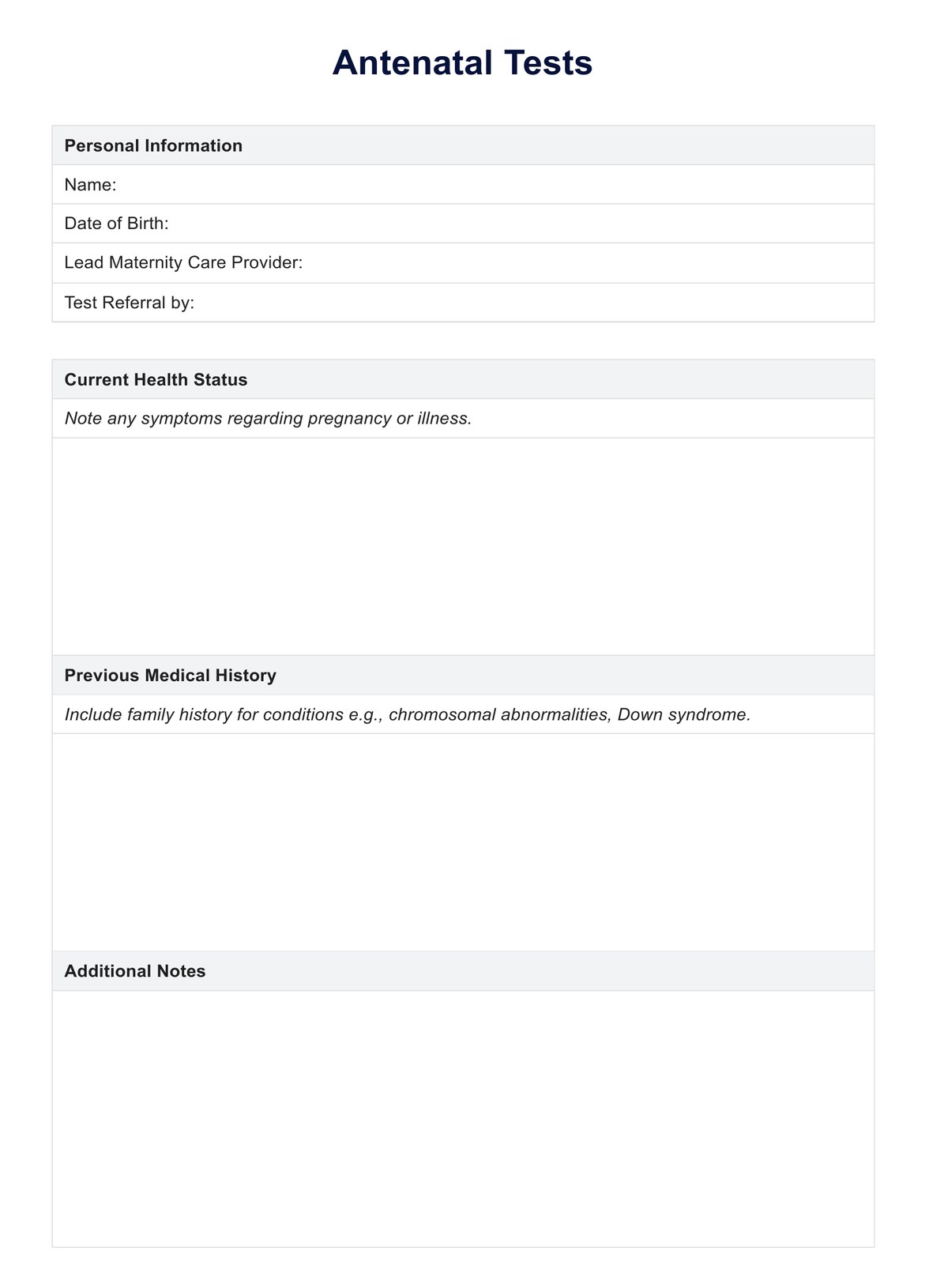Antenatal tests are a series of testing procedures that are conducted throughout pregnancy to assess the health of the pregnant individual and the fetus. These tests can be both screening and diagnostic tests, that are important for detecting things like infection, illness, or genetic conditions, allowing for early treatment to support health.

Antenatal Test
Discover the various Antenatal Test available throughout pregnancy, and how they can protect women and babies.
Antenatal Test Template
Commonly asked questions
The first antenatal test procedures that an individual may experience are blood tests and urine tests, which are usually conducted at the first initial antenatal visit. An ultrasound scan may also be done at this visit to check fetal growth. Testing usually continues throughout pregnancy to continue monitoring development and health status.
The number of antenatal tests an expecting mother has will differ according to several factors. Although there are common screening tests, such as a blood test for iron levels or ultrasound scans for growth, additional testing may be recommended for high-risk pregnancies. Further testing procedures are usually completed following recommendations or referrals from your primary health care provider or lead maternity care provider.
EHR and practice management software
Get started for free
*No credit card required
Free
$0/usd
Unlimited clients
Telehealth
1GB of storage
Client portal text
Automated billing and online payments











